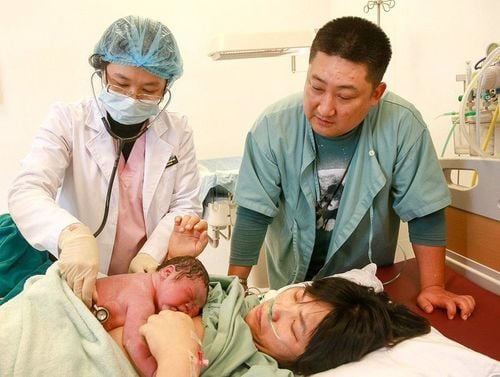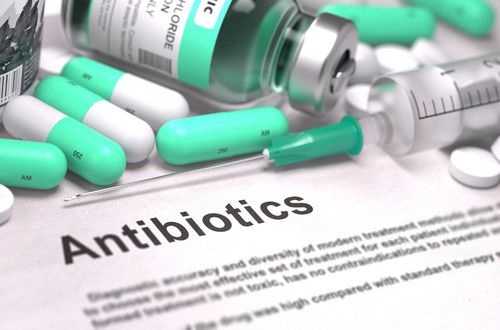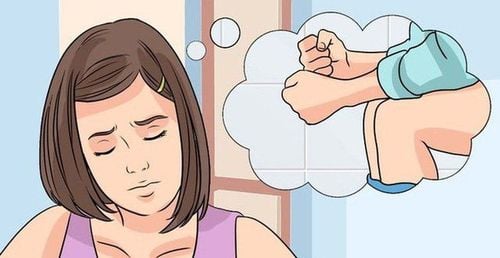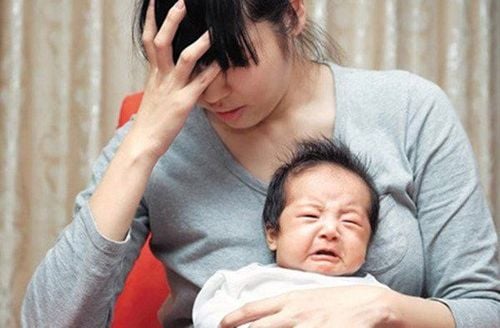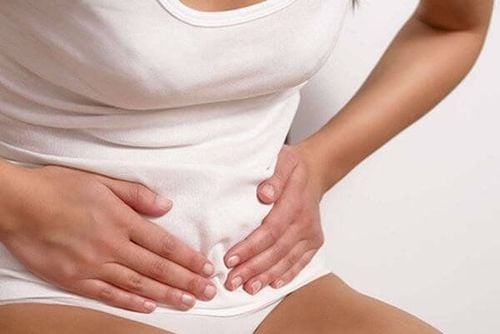This is an automatically translated article.
The article was professionally consulted by Specialist Doctor I Pham Thi Yen - Department of Obstetrics and Gynecology - Vinmec Hai Phong International General HospitalThe postpartum period, also known as the postpartum period, in addition to the physiological changes and medical problems that may arise during this period, health care providers also note to the psychological needs of mothers after childbirth and to be sensitive to cultural differences surrounding childbirth.
After giving birth, mothers' bodies will go through some transient changes. Serious health problems are relatively rare. However, regular follow-up and physical examination after birth is still essential to prevent some dangerous complications such as:
Heavy bleeding (postpartum haemorrhage) Uterine infection Bladder and kidney infection Postpartum depression Postpartum depression Hemorrhage can also appear soon after birth but can also appear about 6 weeks later.

1. Taking care of mothers after giving birth at the hospital
Immediately after birth, mothers will be monitored for at least 1 hour. In the case of anesthetics, the observation time is even longer in the recovery room fully equipped with oxygen tanks, intravenous infusions and other resuscitation equipment
The medical staff will Check your heart rate and take your temperature. Usually in the first 24 hours, the mother's heart rate will return to normal and the temperature may increase slightly, the recovery process takes place quickly. The hospital staff will do their best to minimize the possible pain for the mother as well as the risk of bleeding and infection.
Hemostasis is the first priority. After the birth, the nurse can massage the mother's abdomen regularly and often to help the uterus contract and maintain its original shape thereby preventing bleeding. Doctors may even prescribe oxytocin injected intramuscularly or intravenously to stimulate uterine contractions. If the mother loses a lot of blood during and after delivery, she will need a complete blood count to check for anemia before she leaves the hospital.
Mothers may also urinate a lot after giving birth due to weak bladder muscles making it difficult to control bladder sensations. Doctors will also encourage mothers to urinate frequently and frequently, at least every 4 hours to avoid filling and prevent the risk of bladder infections. In many cases, new mothers are unable to urinate and have to have a temporary catheter inserted into their bladder to empty the urine. Doctors also limit the use of catheters as much as possible because they can increase the risk of bladder infections for pregnant women.
New mothers are also encouraged to defecate before discharge. However, because the hospital stay is often so short, this is relatively difficult to do. If a woman has not had a bowel movement for 3 days or longer, doctors will prescribe a laxative to avoid constipation and increase the risk of hemorrhoids. If the rectum or the muscle around the anus is torn during childbirth, stool softeners may also be used. In addition, Opioids, a pain reliever used during a cesarean section, can make constipation worse. Therefore, if using Opioids, they should be used at the lowest dose.

A new mom can have a normal diet for as long as she wants. Doctors also advise mothers to get up and walk as soon as possible. New moms can also begin exercises to help strengthen the abdominal muscles, usually one day after a vaginal delivery and later if a cesarean section. Bends and knee bends performed right in the postpartum bed can be effective. However, most moms are too tired to start exercising right after giving birth. Caesarean section is a major surgery, so mothers should not exercise or do heavy work until they are fully recovered, which usually takes about 6 weeks.
Before discharge from the hospital, infants will be vaccinated against measles. Vaccines against diphtheria, pertussis, and tetanus should also be given during each pregnancy, preferably between 27 and 36 weeks. Pregnant women who have never had chickenpox or had the vaccine. Chickenpox vaccine should be given the first dose of chickenpox vaccine after birth and the second dose 4 to 8 weeks later.
If a new mother has Rh- blood type and the baby has Rh+ blood type (called Rh factor incompatibility) they will receive Rho(D) immune globulin intramuscularly within 3 days of birth . Rho (D) works to prevent the mother's body from producing antibodies that are dangerous to the fetus.
Before discharge, the mother will be examined one last time. In the event that both mother and baby are healthy, they will be discharged from the hospital within 24 to 48 hours of delivery if they have a vaginal delivery and 96 hours if they have a caesarean section. Even many cases can be discharged after only 6 hours after birth. Mothers will also be provided with information about changes in the body and measures to take to help the body recover stably after giving birth. Routine postpartum visits are also scheduled and communicated to mothers, usually from the 6th week. In the event of a cesarean section or problems, the first visit can be scheduled earlier.

2. Changes of a woman's body right after giving birth
2.1. Increased vaginal discharge New mothers often have increased vaginal discharge. Vaginal discharge is a mixture of fluid, blood, and part of the placenta that has not yet been shed. Normally the blood will only be in the vaginal discharge 3 to 4 days after giving birth, then it turns light brown and after about 2 weeks it becomes milky. Vaginal discharge may continue up to 6 weeks postpartum.
2.2. Medication Use Non-breastfeeding mothers can safely take sleeping pills or certain pain relievers. For women who are breastfeeding, acetaminophen and ibuprofen are relatively safe
2.3 pain relievers. Genital pain The area around the vagina is often painful, especially when urinating. An perineal tear or cut during childbirth can contribute to increased pain and swelling.
Immediately after birth and for the first 24 hours, ice or cold packs can be used to reduce swelling and pain. Creams or sprays may also be applied. Mothers also need to pay attention to clean the area around the vagina regularly 2-3 times a day to reduce pain as well as reduce the risk of infection.
2.4. Hemorrhoids Straining during a vaginal delivery can cause or worsen hemorrhoids. Pain caused by hemorrhoids can be alleviated by soaking in a bath with warm water or applying some gel containing a local anesthetic.
2.5. Milk engorgement occurs during the early stages of milk production in the body. Non-breastfeeding mothers can wear a fitted bra to raise their breasts to help reduce lactation, or apply ice and pain relievers to relieve discomfort. Limit manual milking because it can stimulate the body to increase milk production.
2.6. Postpartum depression Most women will experience postpartum depression. They may also feel irritable, moody or anxious leading to decreased concentration and difficulty sleeping. These symptoms usually go away after about 7 to 10 days. However, if they persist for up to 2 weeks and interfere with baby's care or daily activities, mothers should seek medical attention to be diagnosed in case of persistent depression or a medical condition. other mental disorders.
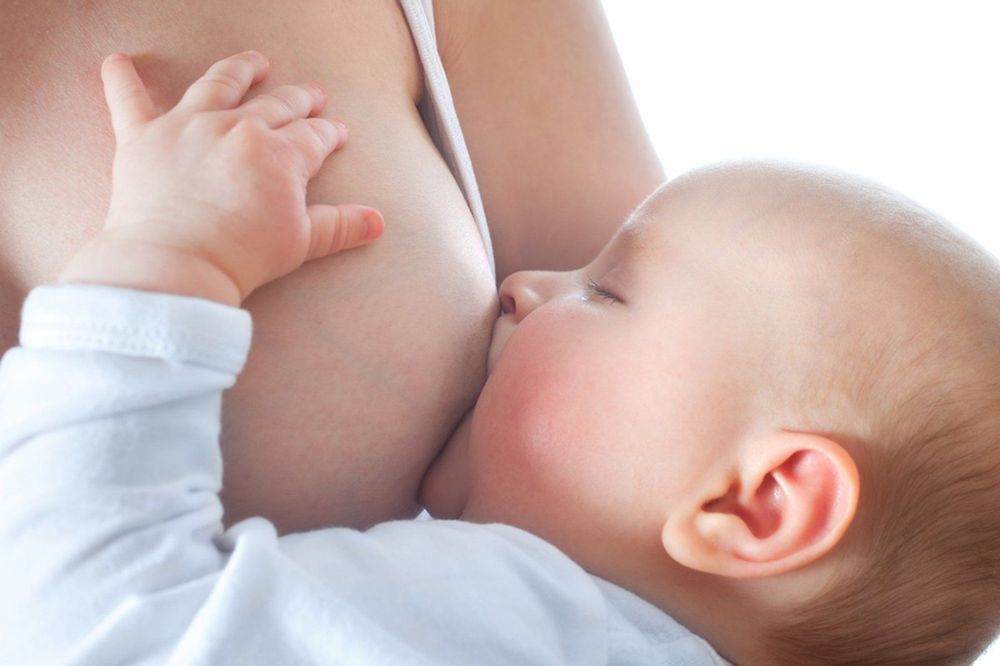
3. Taking care of mothers after giving birth at home
Postpartum mothers can resume normal daily activities as soon as they feel ready. A healthy diet and regular exercise can help moms get back in shape quickly after giving birth. They can also have sex as soon as they want and feel comfortable with it. However, doctors recommend having sex only when the damage during childbirth has healed.
Postpartum mothers should also pay attention to cleaning the vaginal area 2 to 3 times per day to reduce the risk of infection. After giving birth, especially a cesarean section, mothers should also not put on anything including tampons and douches for at least 2 weeks. Strenuous activities and heavy lifting should be avoided for about 6 weeks. And make sure to clean the incision thoroughly to avoid infection.
Postpartum period, the mother's uterus still expands and continues to contract for a while, then gradually returns to its original state in the next 2 weeks. The contractions are often irregular and can be painful, especially in the case of nursing mothers because when the body stimulates the production of oxytocin, the uterine contractions become more severe.
Doctors recommend that mothers breastfeed exclusively for at least the first 6 months and continue to breastfeed with solids for the next 6 months until the baby is no longer interested in breastfeeding. Breastfeeding mothers need to learn how to properly position their babies while nursing. If the baby is in a bad position, the mother's nipples can be sore and cracked. Sometimes babies suck on their lower lip and suck, causing the nipple to become irritated. In such cases, the mother can use her thumb to gently pull the baby's lips away from the mouth. To remove the nipple from the baby's mouth, you should first insert your finger into the baby's mouth to break the suction caused by the baby sucking. This movement can help prevent breast damage and pain. When breastfeeding, mothers also need to increase their calorie intake by 300 to 500 calories per day. In addition, vitamins and minerals are also essential. Seafood also contains many nutrients that are important for the growth and development of babies. However, breastfeeding women should choose seafood containing less mercury to avoid affecting the health of the baby.
Some information on the topic of maternal health care after giving birth, you may be interested:
Instructions for taking care of the incision / perineal stitches for pregnant women at home Abnormal signs in the wound Caesarean section Accumulation of old cesarean wound can lead to secondary infertility

The postpartum period is a time when mothers change physically as well as mentally and emotionally. This is also a difficult period when a woman is faced with various health-related problems. It is very important to take care of mothers after giving birth from the time they are in the hospital until they go home. Postpartum mothers need to be vaccinated with some specific vaccines, in addition to a diet that ensures enough energy and nutrients not only for the mother but also for the child, especially the women. Breastfeeding and a reasonable rest and exercise regimen to recover soon and get back in shape like before birth.
Currently, Vinmec International General Hospital is providing a Package Immunization Program with a variety of vaccines for different audiences, from infants, young children, adults, pre-women. , during and after pregnancy.
The advantages of vaccination at Vinmec include:
Children will be examined by pediatricians - vaccines, fully screened for physical and health problems, and advised on vaccines - Vaccination and vaccination regimens, how to monitor and care for children after vaccination before ordering vaccination according to the latest recommendations of the Ministry of Health & World Health Organization to ensure the best effectiveness and safest for children. A team of experienced and professional pediatric doctors and nurses, understand children's psychology and apply effective pain relief methods for children during the vaccination process. 100% of vaccinated children were monitored for 30 minutes after vaccination and reassessed before leaving. Undertake medical supervision before, during and after vaccination at Vinmec Health System and always have an emergency team ready to coordinate with the vaccination department to handle cases of anaphylaxis, respiratory failure - circulatory arrest, ensuring Ensure timely and correct handling when incidents occur. The vaccination room is airy, with a play area, helping children feel comfortable as if they are walking and have a good mentality before and after vaccination. Vaccines are imported and stored in a modern cold storage system, with a cold chain that meets GSP standards, keeping vaccines in the best conditions to ensure quality. Parents will receive a reminder message before the vaccination date and their child's vaccination information will be synchronized with the National Immunization Information System.
Please dial HOTLINE for more information or register for an appointment HERE. Download MyVinmec app to make appointments faster and to manage your bookings easily.
References: msdmanuals.com, uptodate.com





